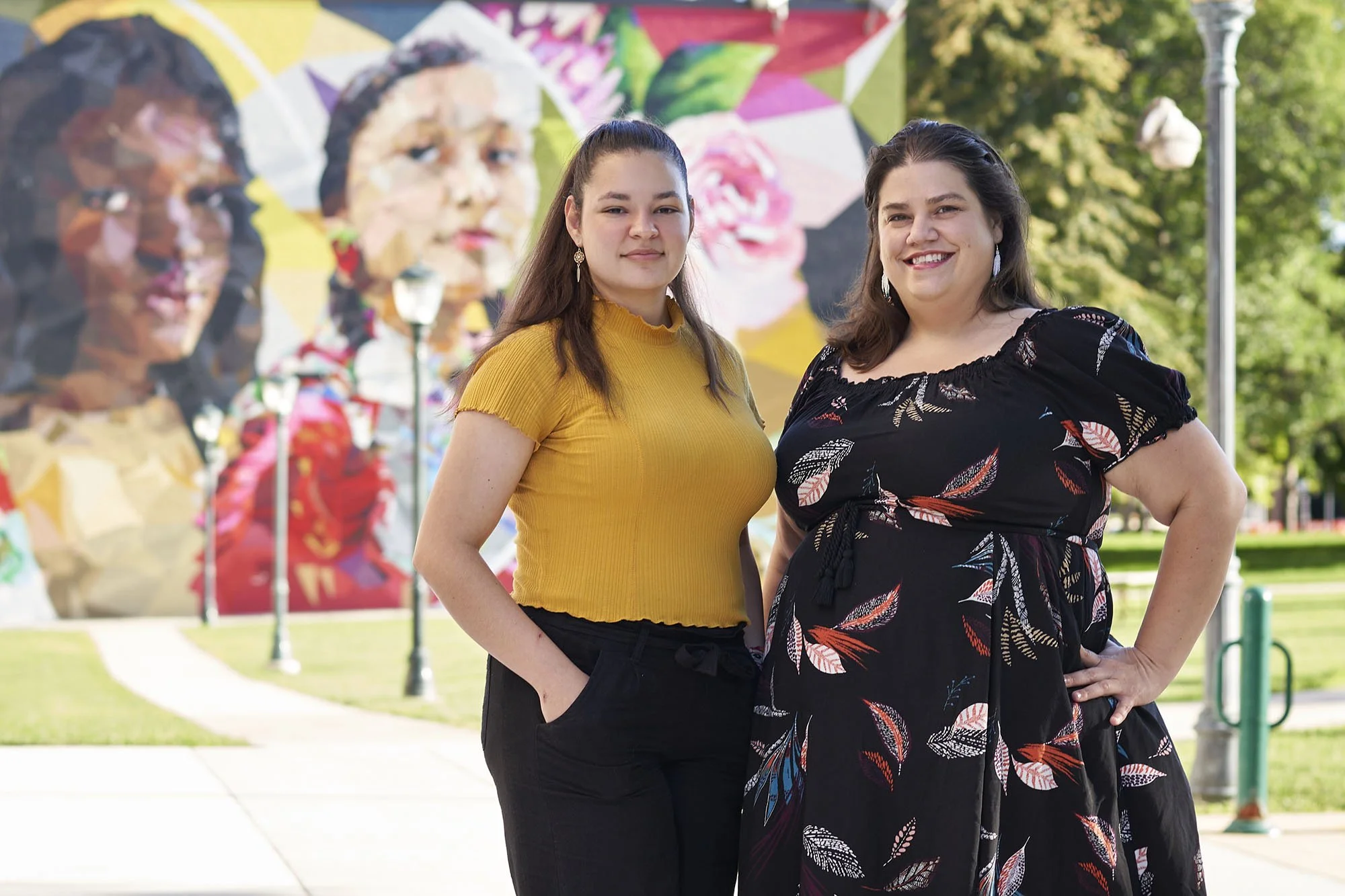The students and faculty working on the Wild Rice Project in Marquette University’s Indigeneity Lab are trying to answer the question: Will wild rice grow in Milwaukee’s rivers? What may seem like a straight-forward science-based approach, requires relationship building with Indigenous communities and a deep understanding of the connection Native people have with the waters and wild rice.
The Indigeneity Lab at Marquette began in 2021 thanks to grant funding for undergraduate research. The university was looking for opportunities to support Indigenous students and improve relationships with Indigenous alumni and communities in the area. The Wild Rice Project is a key piece of this lab in which students are using the scientific method to test the adaptability of the plant and determine the species that is most likely to grow in Milwaukee waterways.
I sat down with Dr. Samantha Majhor, a faculty advisor for the program and Danielle Barrett, a student who has been working on the project since last year and is President of the Native American Student Association. Majhor is of Dakota and Assiniboine descent, and Barrett comes from the Eastern Band Cherokee Tribes. They share their thoughts and experiences working on the project.
Sacred Stories
Wild rice, called manoomin in the Algonquin language, has a deep history that is closely tied to the Anishinaabe people who were forced to this region and are based in what is now Minnesota and Wisconsin. “For Indigenous people, wild rice is a relative, it’s part of sacred stories,” says Majhor. There is a prophecy among these people that says they would find a place where food grows on the water. When they found wild rice, they chose to settle here.
“Food is a piece of home that told them where they needed to be,” explains Barrett. Because of this deep connection to the plant that has provided food, medicine, and nourishment for centuries, the Native people of this region honor the rice and protect it.
In order to supply the Marquette lab with wild rice and gain the trust of Indigenous communities to run lab tests with it, the participants have to build relationships with Indigenous tribes and community members—but that takes time. “We have a fraught history here in the United State of settler colonialism and assimilation projects,” explains Majhor. “The medical industry—and other industries—are areas where western science and medical projects have done harm and are looked at with suspicion from Native communities.”
Science, Culture, History
This is why it’s vital for the Indigeneity Lab to take an approach that looks at the science, culture, and history of the plant. And by doing that, there is the potential to mend relationships with the Indigenous community and potentially reintroduce the plant into the Milwaukee rivers.
“If we grow it in the Menominee River, we can grow awareness of the community that we haven’t seen before,” states Barrett. But even beyond the far-reaching cultural impacts this could hold, the ecological impacts would be tremendous. “If the grain can even grow, it would speak volumes to the water quality and how healthy the environment has become.”
Numerous Milwaukee organizations and the local government have been working to clean up the water for years. If wild rice could grow, it would show the success of those efforts. And to take it a step further, the plant has the ability to clean the water it grows in.
There are many layers to this project and a deep-seeded history of oppression that needs to be talked about. Marquette University is taking an important step in acknowledging its own history and working to mend relationships with the Indigenous communities in the region. Wild rice is a central part of that process and has the potential to restore ecosystems, repressed Native knowledge, and culture.
Learn more about the Indigeneity Lab at today.marquette.edu/2022/05/indigeneity-lab-students-honored-with-student-activist-award/.
Read the article on the Shepherd Express, part of the regular column Here of the Month.

